I hated maths as a kid.
Hate, hated, hated, HATED it.
To me there was no more depressing phrase than:
“Good morning class, today we’re doing algebra.”
Instantly, I felt my attention wander… to the window… out to the playground… to the football field… where freshly cut grass was whipped into the air by a cool breeze… and little butterflies danced on the–
“WAKE UP, MR WAKE!”
The same thing might happen to you when I mention today’s topic.
…Keywords.
Yes, for many businesses – even seasoned marketers – keyword marketing is hardly the sexiest, most thrilling subject.
Lots of people shy away from it…
They think it’s all about hacking Google algorithms and complicated SEO techniques… or stuffing blog posts and web pages full of repetitive guff.
Try and talk to someone about keyword marketing and you’ll see their eyes wander to the window… to the street to the distant fields… where butterflies dance on the–
WAKE UP!!
Look, it doesn’t have to be like that.
Forget about hijacking the system or cracking mathematical codes – and don’t even think about paying some ‘SEO’ expert who has emailed you out of the blue with a promise of delivering traffic.
Here’s what you need to know…
The no-nonsense guide to keywords
Keywords are simply a way of making your website content more visible to people searching for information.
It doesn’t involve stuffing articles full of repeated phrases…
And it doesn’t involve cracking some hidden Google code.
It just means that you use some of the words and phrases that your ideal customers might be using when they’re on search engines.
In doing so, you are more likely to get them hooked up to your webpage.
Simples, as the evil Meercat says.
To give you an example…
If someone is looking specifically for a Welsh organic cheese that delivers to home addresses in the UK, they might type it ‘welsh organic cheese delivery UK’.
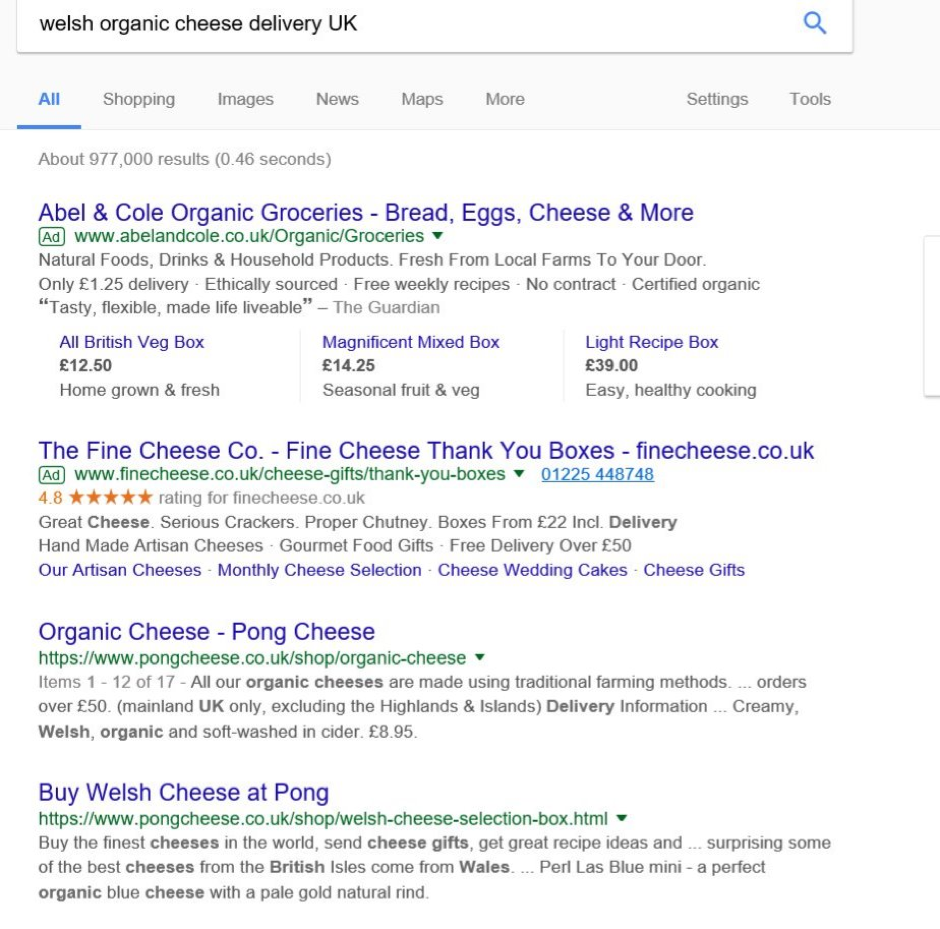
As you can see, Pong Cheese (weird name but it obviously works) is right up there with two entries in at number 3 and 4 of page one on Google.
Or perhaps a worried health-conscious person has been reading all the latest articles about the dangers of sweeteners in diet drinks (linked to strokes and dementia, apparently).
They might type ‘sweetener dangers’ into Google and find this…
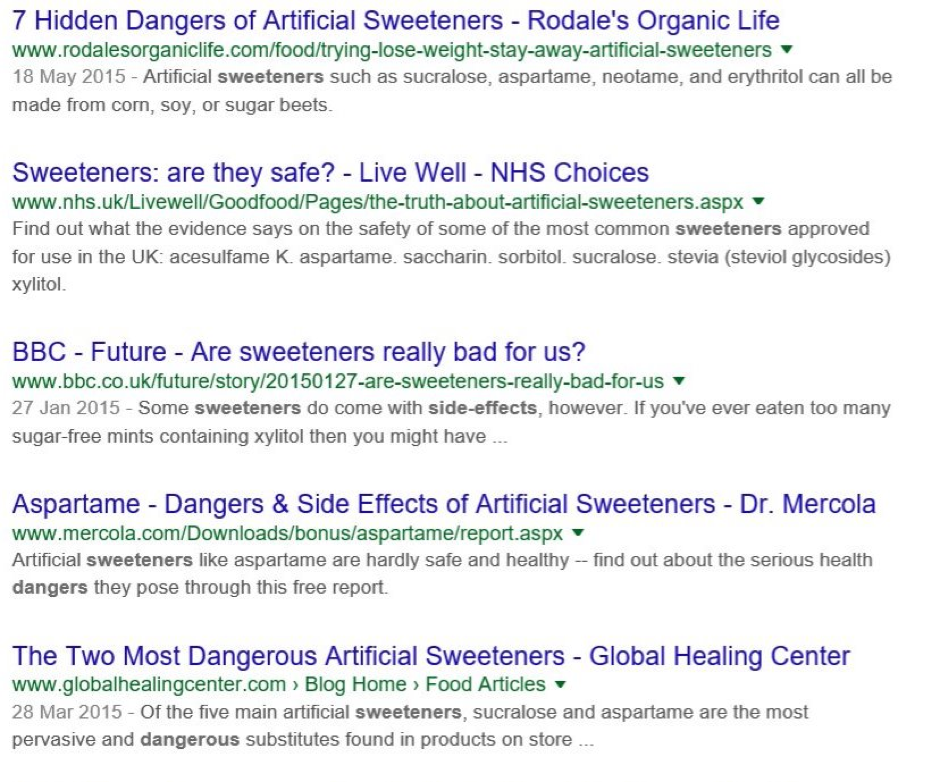
As you can see, above the BBC and the NHS is Rodale’s Organic Life, a private website with blog and shop:

So this is direct traffic to a site that’s totally relevant to a health conscious person who might worry about sweeteners, serious illness and weight loss.
See why it’s so important?
It’s worth thinking about keywords, no matter how boring or technical it might seem because it’s a free method of drawing qualified prospects to your website.
Once there, you can convert these prospects into email subscribers, social media followers and customers.
But how do you know what people are searching for?
Well this is where you need a keyword tool.
5 keyword tools to help you target the right keywords and boost your traffic
1. Keyword.io
This is a very simple tool to try out. Go to the site and it will show a pop up inviting you to join for free, or you can use it without joining.
Enter in the topic of your post. For instance, you might have a baking website and you want to write about gluten free cakes.
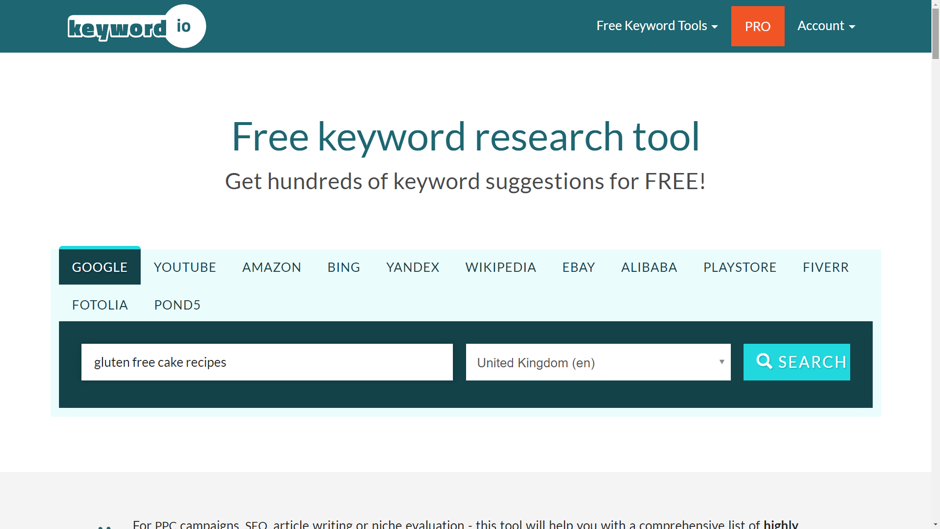
The tool reveals the most popular searches by users on Google and other sources such as Wikipedia’s keyword tool.
It looks like this:
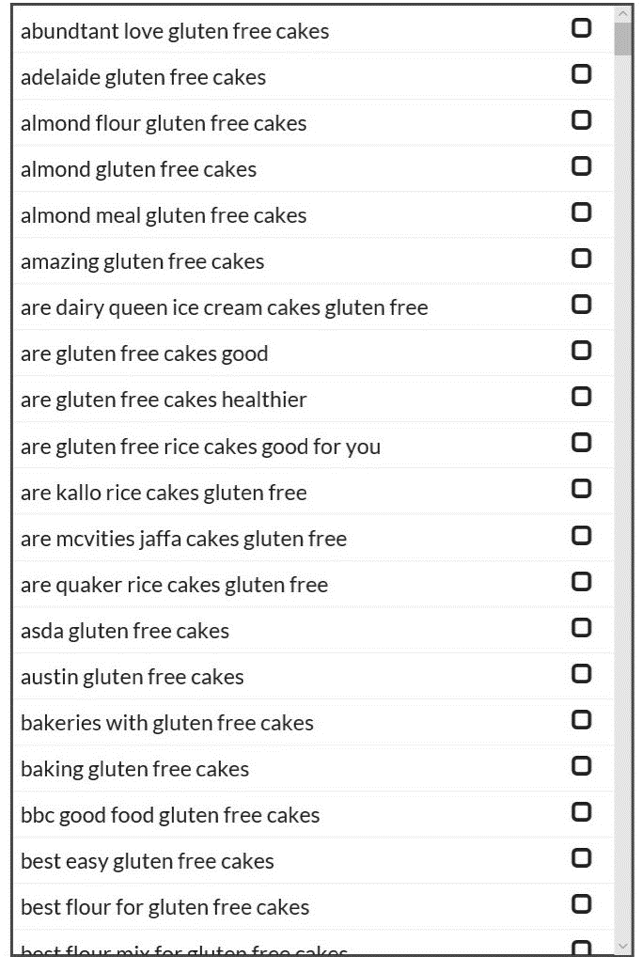
You can tick the most relevant searches on left-hand side of the screen and it allows you to compile a permanent stored list of words you can use for your articles and blog posts.
2. Keys4Up.com
Another related keyword research tool which you can see here…

Again, this allows you to find related keyword and adapt your content accordingly.
3. app.WordTracker.com
For this tool I’ve used the earlier example of ‘dangers of sweeteners’ as a search term.
As you can see, there are loads of other options for subject matter to tackle in a blog post, or to add into the piece you’ve created.
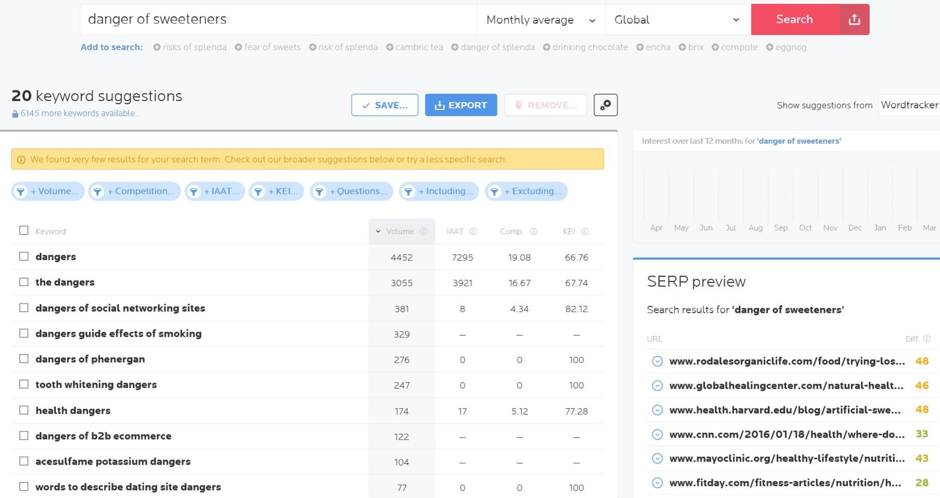
Plus – as you can see on the right-hand side of the page, they’ve listed the top sites getting traffic from these terms. This is a great little feature.
Go to those sites, see what they’re doing and take as much inspiration as possible.
• What are they blogging about?
• What kind of specific phrases and terms are they using?
4. Semantic-link.com
This automatically finds related words for you. You can see it here.
Using that same example on this tool…
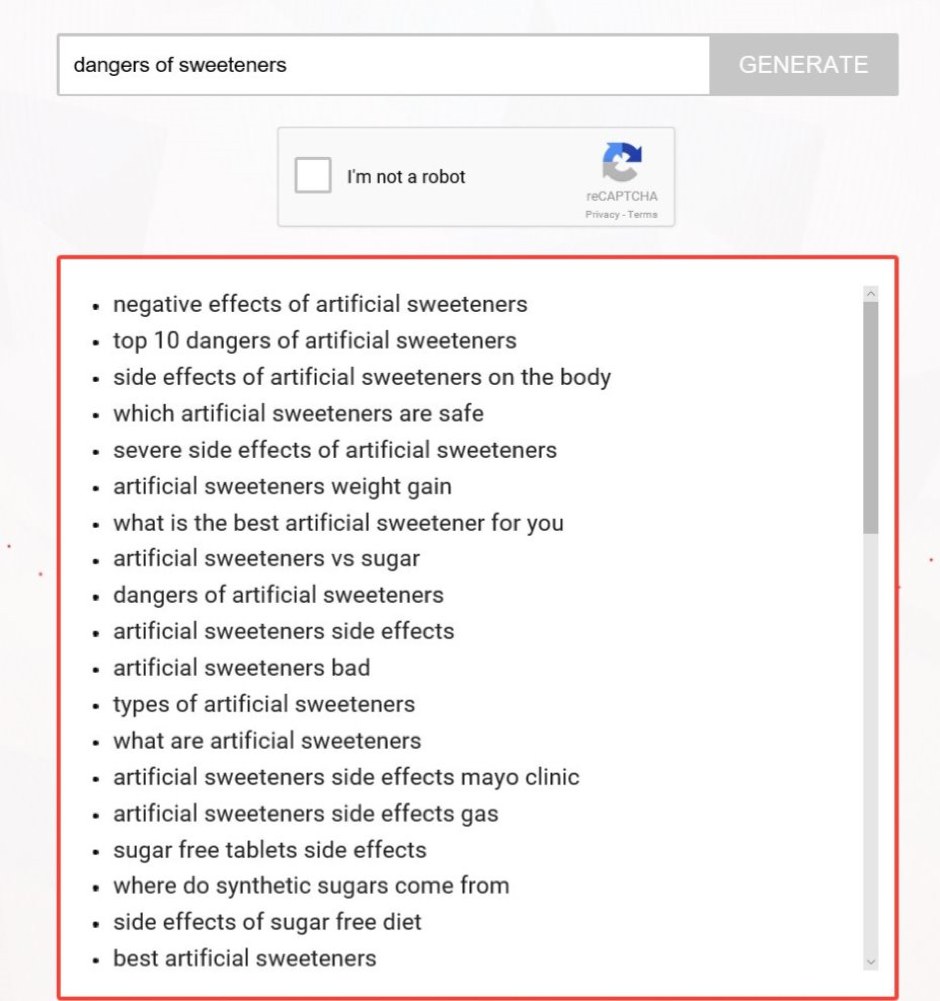
There are a lot of phrases you can get into the post to try and tap into those searches OR use to create new posts tackling specific interests.
And finally…
5. VideoCents.com
This is a downloadable app for YouTube keywords, but it costs $95. I would start with my first recommendation Keyword.io, which looks at YouTube keywords and is free.
One more thing before you try these out…
Important: Prioritise the QUALITY of your content
Don’t fall into the trap of creating blog posts, reports, videos and articles based on keywords alone. Ideally, they are about enhancing your content and making it more visible.
There’s no point in attracting visitors to a page if that page is boring, spammy, or useless.
Try to focus on creating an interesting, relevant and useful blog post for your target audience… then think about keywords as a way of flagging up this great content to people who might be looking for this info.
